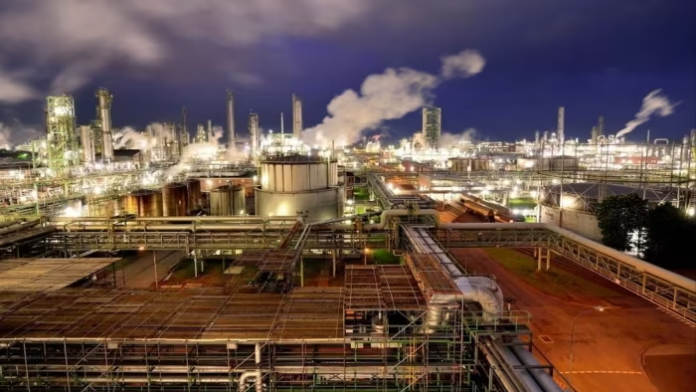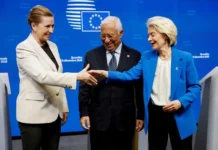Written by Were Kelly
The chemical conglomerate Ineos is accelerating a fire sale of its debt, offloading €2 billion in bonds as it battles a severe downturn gripping the European chemicals industry, a crisis executives blame on unsustainable energy costs and a flood of cheap Asian imports.
The move comes as the company shuts down major production facilities and credit rating agencies downgrade its debt to junk status, signalling deep distress within a foundational European industrial sector.
Ineos confirmed the bond sell-off on Thursday, a step to manage its towering debt pile, which has peaked at €11.7 billion, giving it a leverage ratio of 8.8 times its earnings.
This financial manoeuvring occurs against a backdrop of strategic retreat: the company recently closed a plant in Rheinberg, Germany, costing 175 jobs, and has confirmed the impending closure of its historic Grangemouth facility in Scotland.
The sector-wide data is bleak, with European chemical output down ten per cent this year and imports from China up eight per cent.
Ineos founder Sir Jim Ratcliffe has been vocal in his criticism. “The EU is committing economic suicide with its energy policy,” he stated recently. “How can we compete when our gas costs are four to five times those in the US?”
The credit rating agencies share the concern, if not the rhetoric. Moody’s, which just downgraded Ineos to BB-, said in its report, “The negative outlook reflects the high leverage and significant uncertainty in the market, driven by prolonged weak demand and intense global competition.”
An industry lobbyist was even more dire, stating, “We are facing an existential threat. Without tariffs or massive state support, a core part of European industry will vanish.”
The broader implications are vast. The European chemicals sector is a €1 trillion industry that supports 24,000 direct jobs and is a key supplier to manufacturing, agriculture, and pharmaceuticals.
The combination of high energy prices, driven by the war in Ukraine, and fierce competition from China and the United States—where shale gas has provided a massive cost advantage—has created what many are calling a “perfect storm.”
The European Union’s proposed ReArm (Resilience and Autonomous Production of Raw Materials) initiative may offer some relief, but for many plants and workers, it may prove too little, too late to prevent a wave of deindustrialisation.
Sources: FT, Bloomberg.



















